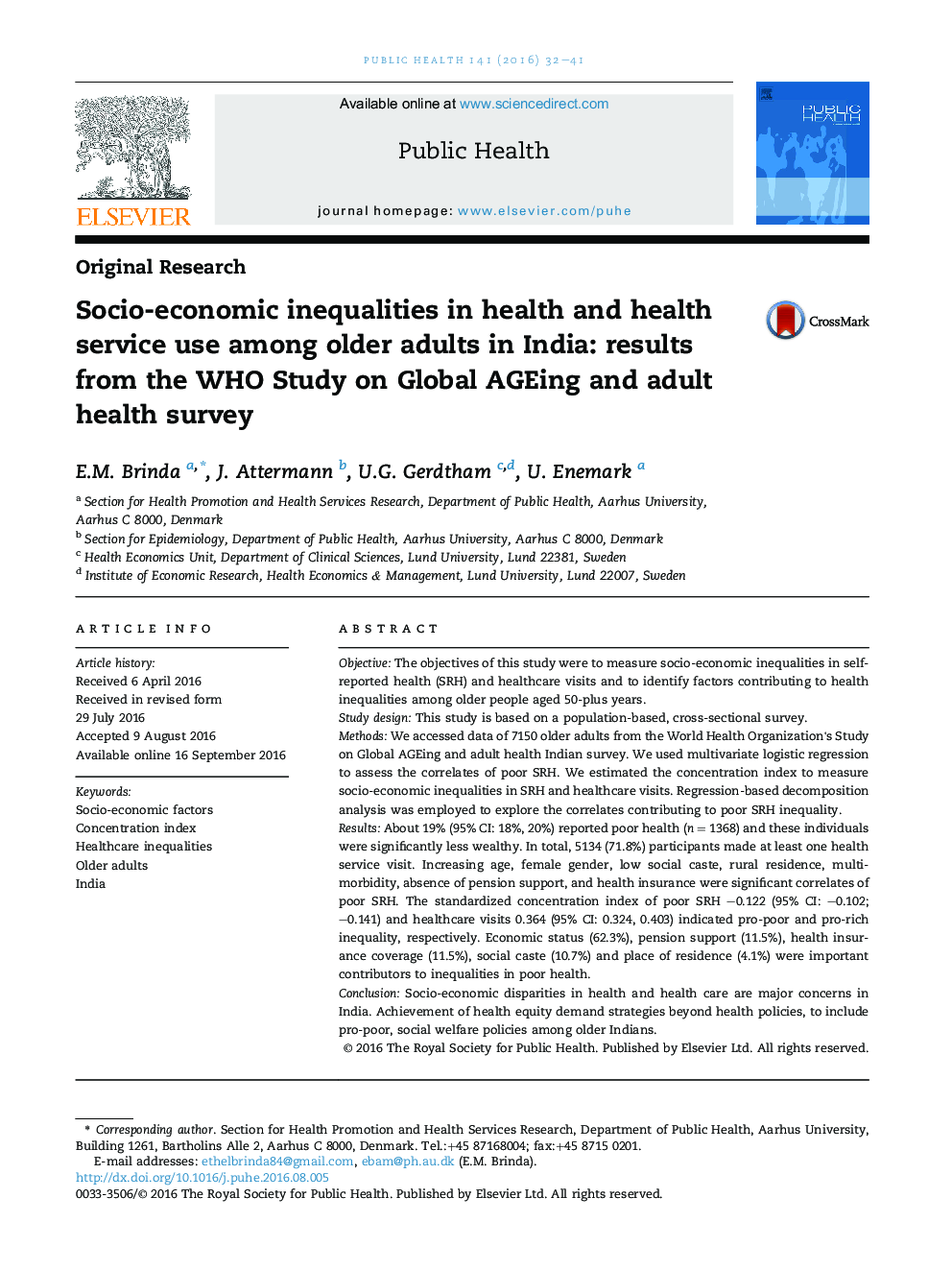| کد مقاله | کد نشریه | سال انتشار | مقاله انگلیسی | نسخه تمام متن |
|---|---|---|---|---|
| 5123068 | 1487202 | 2016 | 10 صفحه PDF | دانلود رایگان |

- Reporting of poor health was concentrated among individuals belonging to poor socio-economic status.
- In contrast, participants with higher wealth status had more frequent health service visits.
- Inequalities in economic factors contributed to health inequalities among older individuals in India.
- Health policies and social protection strategies may promote better health among older Indians.
ObjectiveThe objectives of this study were to measure socio-economic inequalities in self-reported health (SRH) and healthcare visits and to identify factors contributing to health inequalities among older people aged 50-plus years.Study designThis study is based on a population-based, cross-sectional survey.MethodsWe accessed data of 7150 older adults from the World Health Organization's Study on Global AGEing and adult health Indian survey. We used multivariate logistic regression to assess the correlates of poor SRH. We estimated the concentration index to measure socio-economic inequalities in SRH and healthcare visits. Regression-based decomposition analysis was employed to explore the correlates contributing to poor SRH inequality.ResultsAbout 19% (95% CI: 18%, 20%) reported poor health (n = 1368) and these individuals were significantly less wealthy. In total, 5134 (71.8%) participants made at least one health service visit. Increasing age, female gender, low social caste, rural residence, multimorbidity, absence of pension support, and health insurance were significant correlates of poor SRH. The standardized concentration index of poor SRH -0.122 (95% CI: -0.102; -0.141) and healthcare visits 0.364 (95% CI: 0.324, 0.403) indicated pro-poor and pro-rich inequality, respectively. Economic status (62.3%), pension support (11.5%), health insurance coverage (11.5%), social caste (10.7%) and place of residence (4.1%) were important contributors to inequalities in poor health.ConclusionSocio-economic disparities in health and health care are major concerns in India. Achievement of health equity demand strategies beyond health policies, to include pro-poor, social welfare policies among older Indians.
Journal: Public Health - Volume 141, December 2016, Pages 32-41